Can a German Shepherd Eat Pasta?
Date Published: February 12, 2024 | Last Modified: February 16, 2024
Before we dive in, it's important to establish that German Shepherds are indeed able to enjoy pasta as part of their diet. In this article, we will explore the potential health benefits of incorporating pasta into your German Shepherd's meals, as well as the pros and cons to consider. Additionally, we will touch on any safety concerns associated with feeding pasta to your furry friend, including whether it is toxic to them or not. By the end of this read, you'll have a better understanding of whether pasta is a good addition to your German Shepherd's diet.
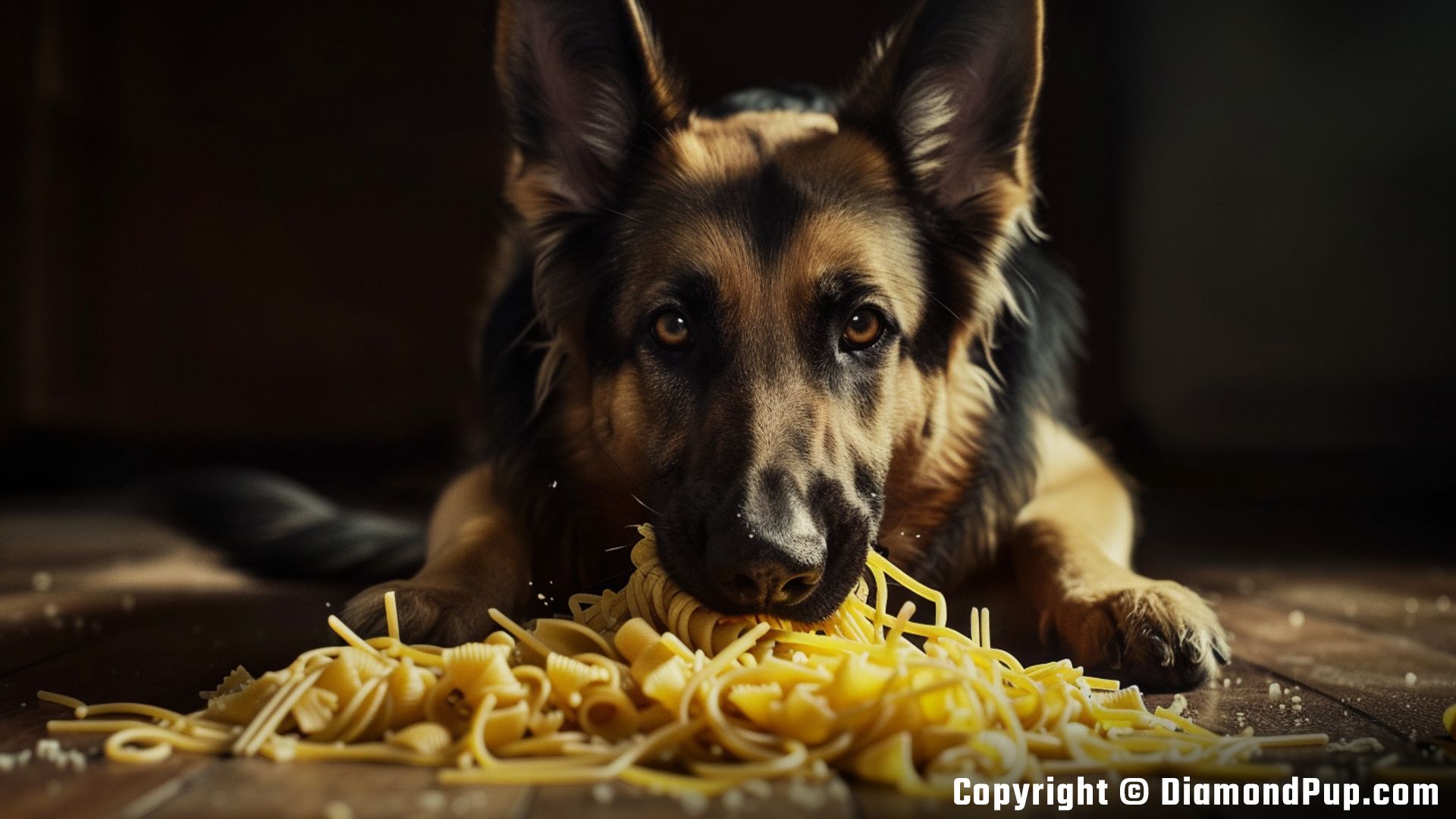
Are Pastas Good for German Shepherds?
As a veterinarian nutritionist with expertise in canine diets, I can confidently say that pasta can be a suitable addition to your German Shepherd's diet when fed in moderation. Pasta can provide your furry friend with a good source of carbohydrates, which are essential for energy. Additionally, whole grain pasta varieties can offer essential nutrients like B vitamins, iron, and fiber, contributing to your German Shepherd's overall health and well-being.
However, it's crucial to ensure that the pasta is cooked plain and without any additives like sauces, seasonings, or excessive salt, as these can be harmful to your German Shepherd. It's also important to consider the portion size of pasta given to prevent overfeeding and potential weight gain. Consulting with your veterinarian to determine the appropriate amount of pasta to incorporate into your German Shepherd's diet is recommended for optimal nutrition.
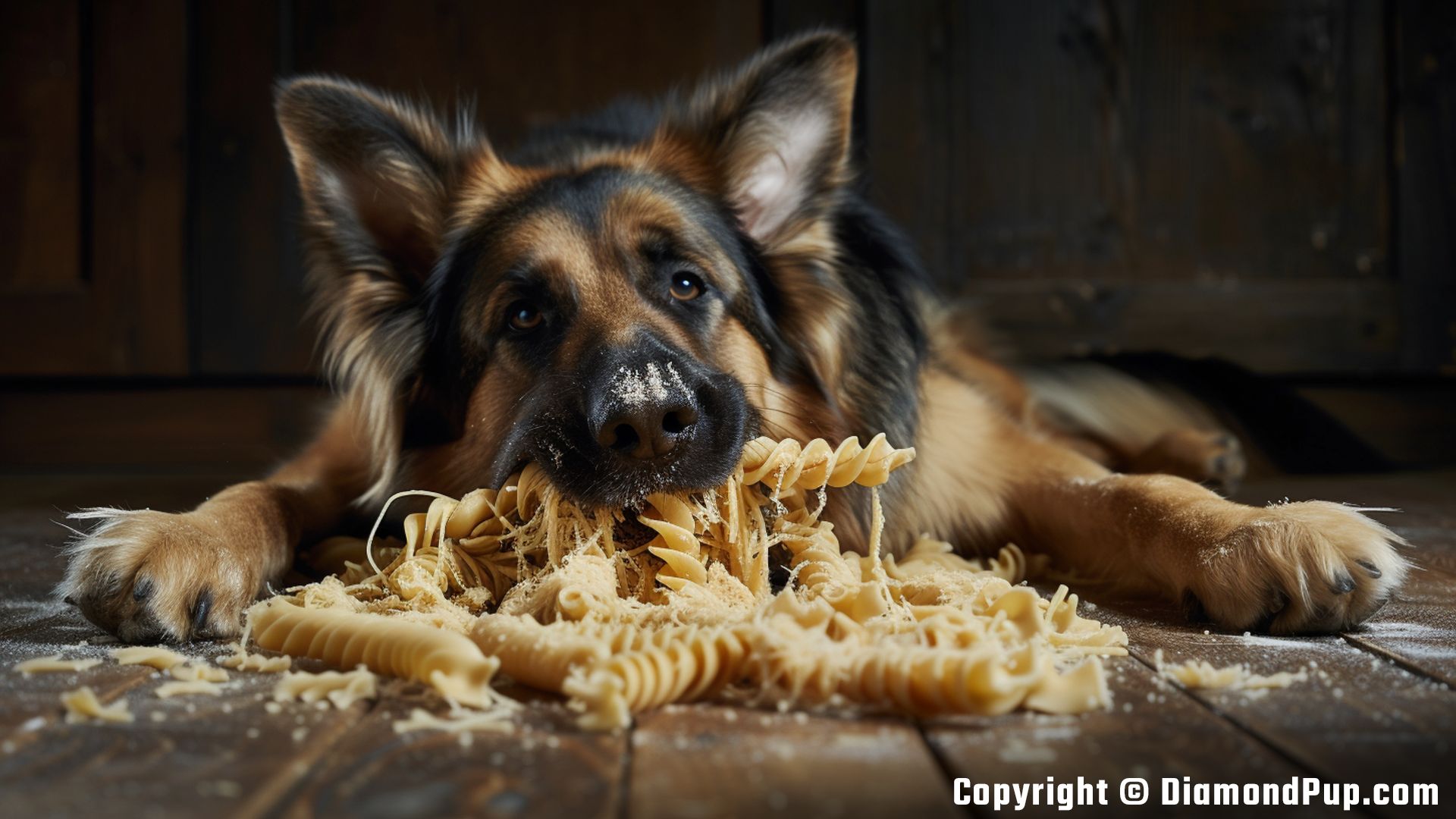
Understanding the Benefits of Pastas for German Shepherds
German Shepherds can benefit from pasta in their diet due to its carbohydrate content. Carbohydrates are an essential source of energy for dogs, providing them with the fuel they need to stay active and healthy. Additionally, pasta can be a good source of fiber, which aids in digestion and helps regulate bowel movements. People also ask about feeding bacon to german shepherds: yes or no?, considering other dietary options. However, it's important to note that pasta should only be given to German Shepherds in moderate amounts, as too much can lead to weight gain and potential digestive issues.
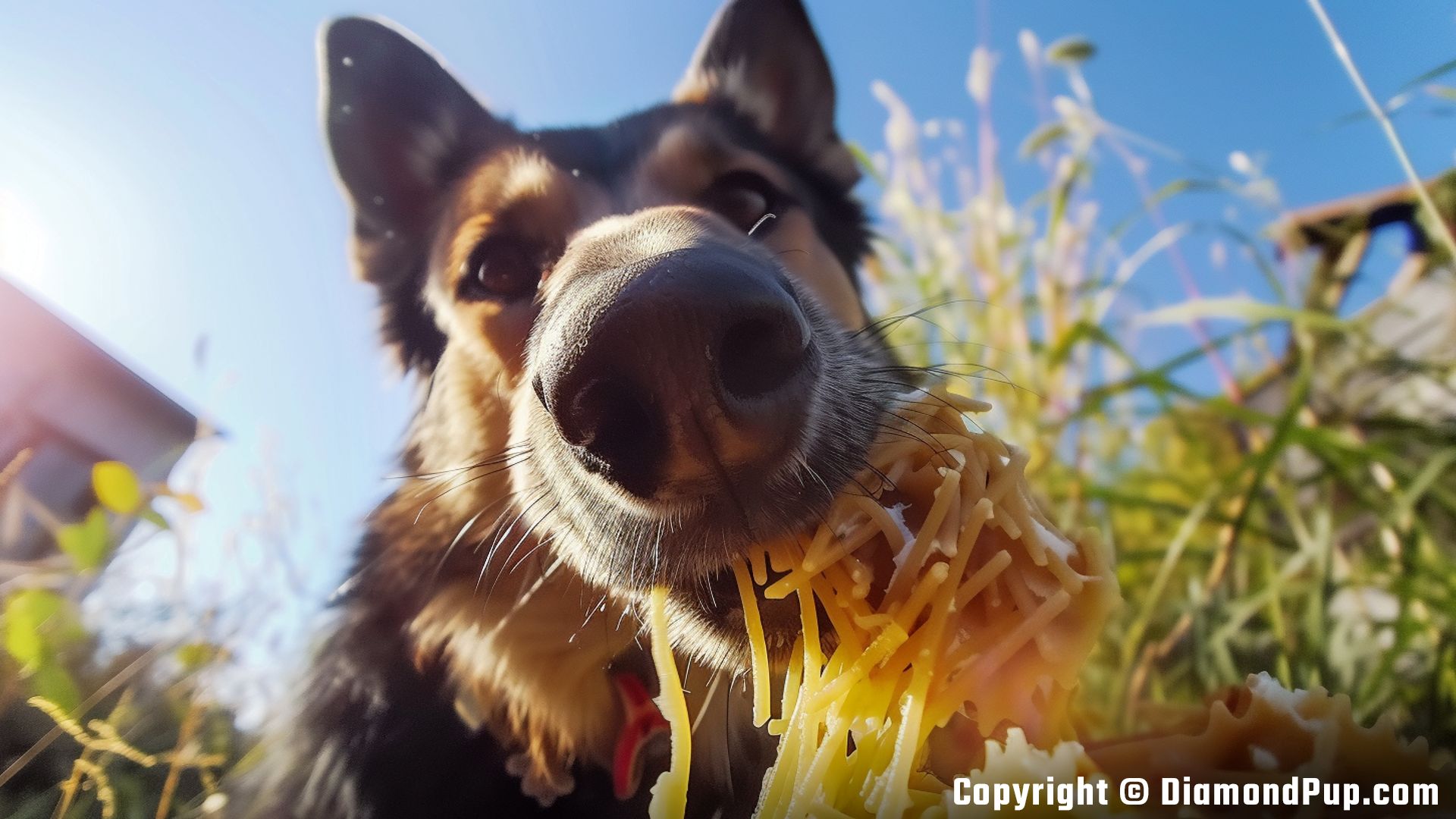
Nutritional benefits of Pastas for German Shepherds
When choosing pasta for your German Shepherd, opt for whole wheat or grain-based varieties rather than white pasta. These types of pasta provide more fiber, protein, and essential nutrients that your German Shepherd needs for a balanced diet. Whole wheat pasta is also less processed and retains more of its natural nutrients, making it a healthier choice for your furry friend. Be mindful of the portion size when feeding pasta to your German Shepherd, as too much can lead to weight gain and digestive issues.
In addition to the nutritional content of pasta, you can also incorporate vegetables, lean meats, and a small amount of cheese or sauce to enhance the flavor and nutritional value of your German Shepherd's meal. Avoid adding ingredients that are high in fat, salt, or seasonings as they can be harmful to your dog's health. As always, consult with your veterinarian before making any significant changes to your German Shepherd's diet to ensure it meets their specific nutritional needs.
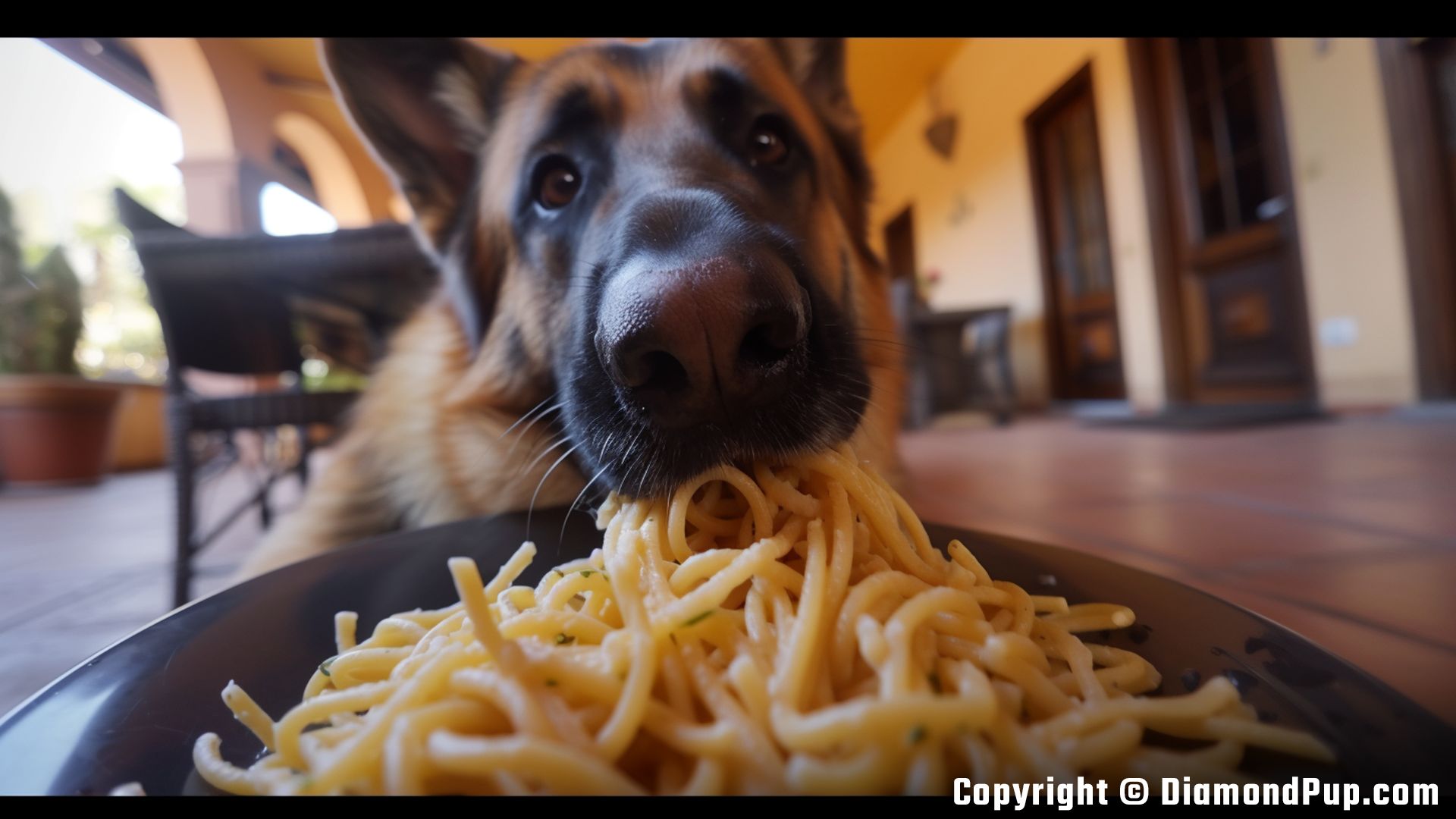
Safely Introducing Pastas to Your Dog's Diet
When introducing pasta to your German Shepherd's diet, it is important to start slowly and monitor their response. Begin by offering small portions of plain, cooked pasta to see how your dog reacts to it. Look for any signs of digestive upset, such as vomiting or diarrhea, which may indicate that pasta does not agree with your pup's stomach. If your German Shepherd tolerates the pasta well, you can gradually increase the amount served over time while still keeping an eye on their overall health and weight.
It is essential to remember that pasta should not make up the majority of your dog's diet, as it lacks some essential nutrients like vitamins and minerals that are needed for their overall well-being. It is best to use pasta as an occasional treat or meal topper, alongside a balanced commercial dog food that meets all their nutritional requirements. By following these guidelines, you can safely incorporate pasta into your German Shepherd's diet without compromising their health.
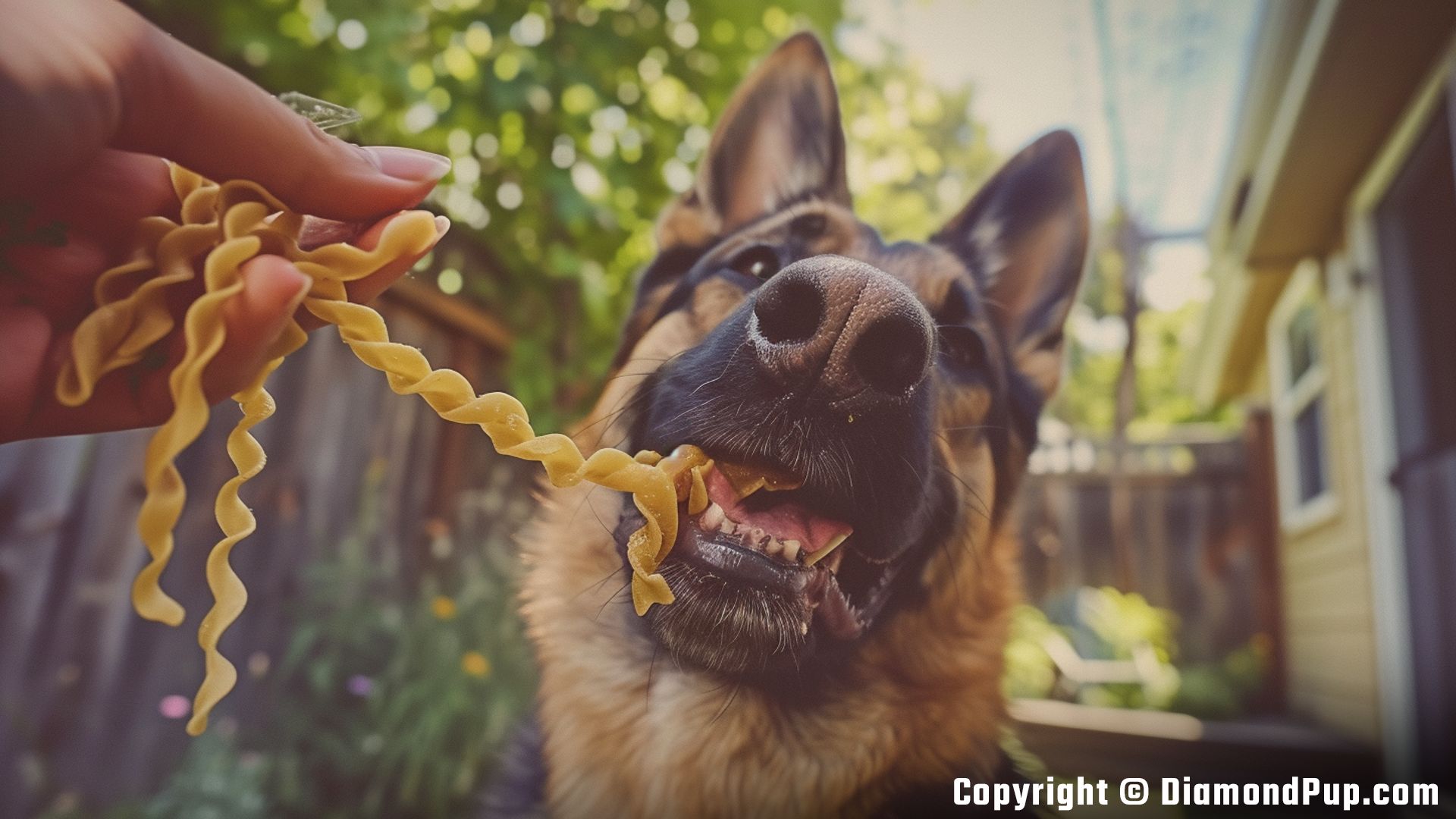
How much pasta can a dog eat safely?
It is important to note that the amount of pasta a German Shepherd can safely eat will vary depending on their size, age, and overall health. As a general guideline, pasta should only make up a small portion of your dog's diet, preferably less than 10% of their total daily food intake. It is essential to balance their pasta consumption with other nutrient-rich foods, such as high-quality protein sources like lean meats and vegetables, to ensure they receive all the essential vitamins and minerals they need to thrive.
Overfeeding pasta or any carbohydrate-rich foods can lead to weight gain and potential digestive issues in German Shepherds. It is always best to consult with your veterinarian or a qualified pet nutritionist to determine the appropriate amount of pasta to include in your dog's diet based on their individual needs and dietary requirements.
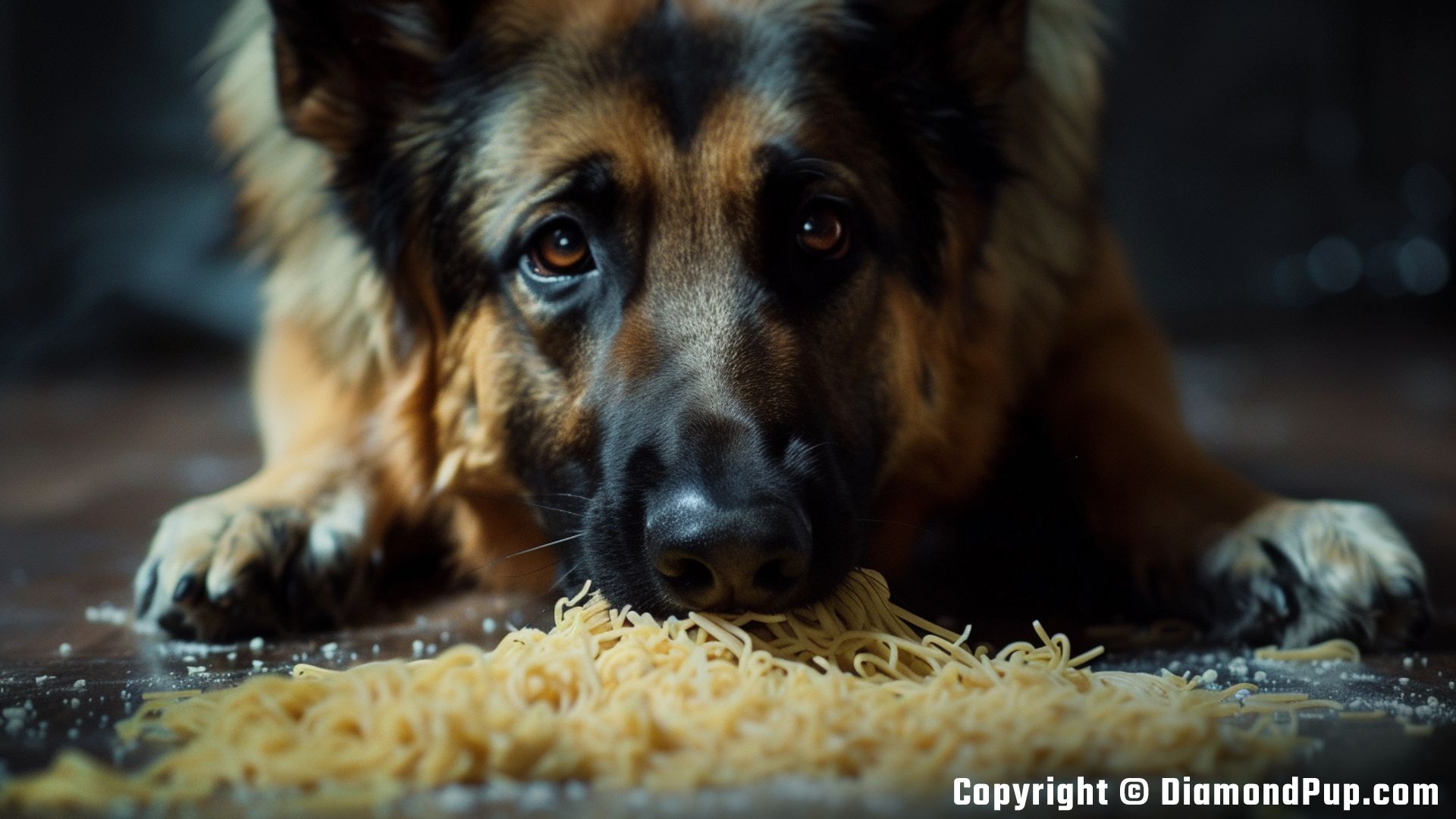
Tips to Remember When Feeding Your Dog Pastas
When feeding your German Shepherd pasta, there are a few important tips to keep in mind. Firstly, it's crucial to ensure that the pasta is cooked plain without any seasonings or sauces that may be harmful to your dog's digestive system. Additionally, it's best to offer pasta to your dog in moderation, as too much can lead to weight gain and digestive upset. People also ask what happens if a poodle eats pasta or something very similar to this, highlighting the need for caution. Lastly, consider the size of the pasta pieces you are feeding your dog. Larger, more manageable pieces are preferable to prevent choking hazards and promote safe chewing. By following these tips, you can safely incorporate pasta into your German Shepherd's diet as an occasional treat.
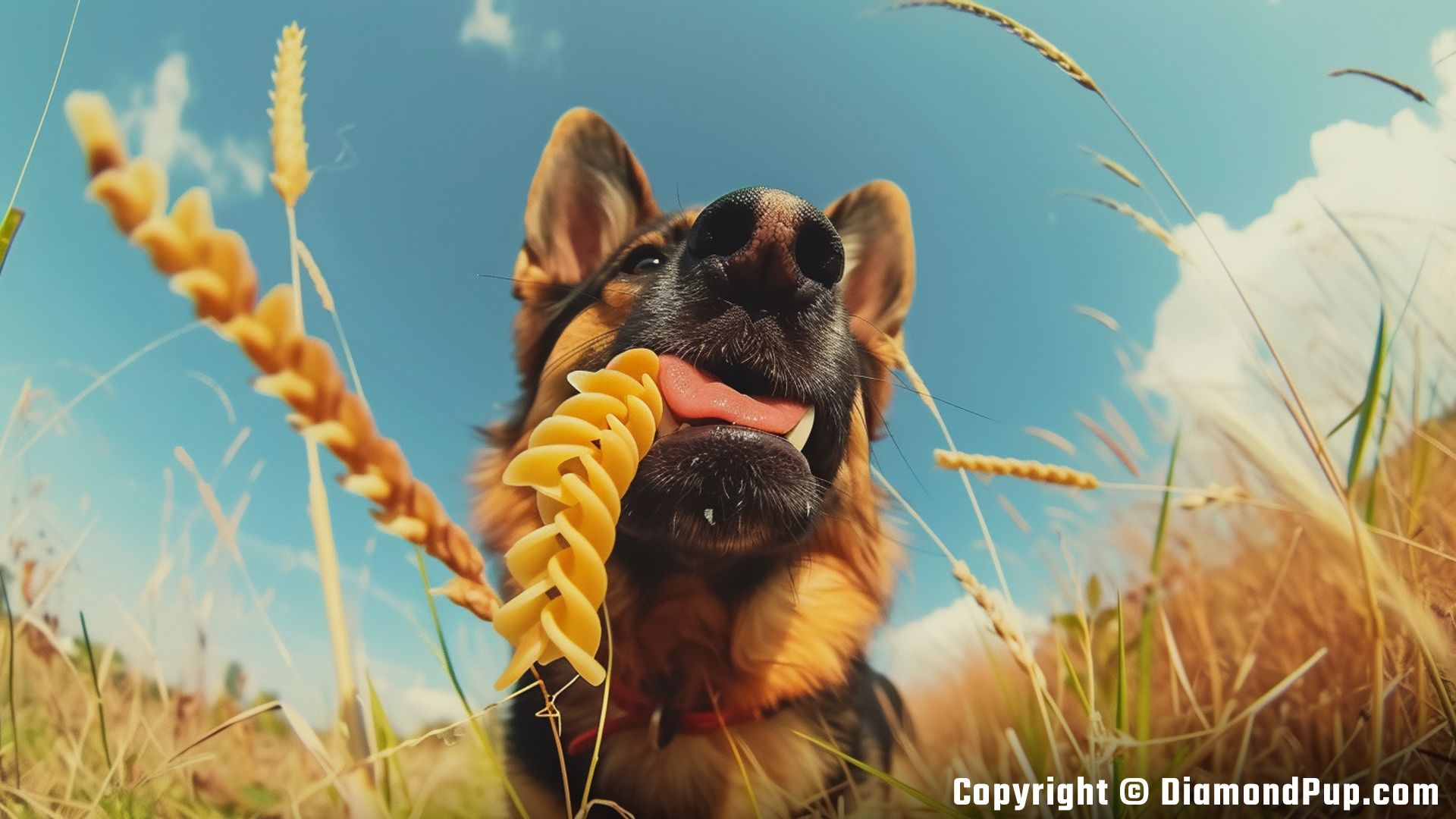
Feeding Your Dog Pastas
When it comes to feeding your German Shepherd pasta, it's important to choose a pasta that is made from whole grains, such as whole wheat or brown rice pasta. These options are higher in fiber, which can aid in your dog's digestion and overall gut health. Additionally, whole grain pastas provide more nutrients compared to refined pasta options.
It's best to avoid pastas with added spices, seasonings, or sauces, as these can upset your dog's stomach and may contain ingredients that are harmful to them. Stick to plain, cooked whole grain pasta as a safe and healthy option for your German Shepherd to enjoy in moderation as part of a balanced diet.
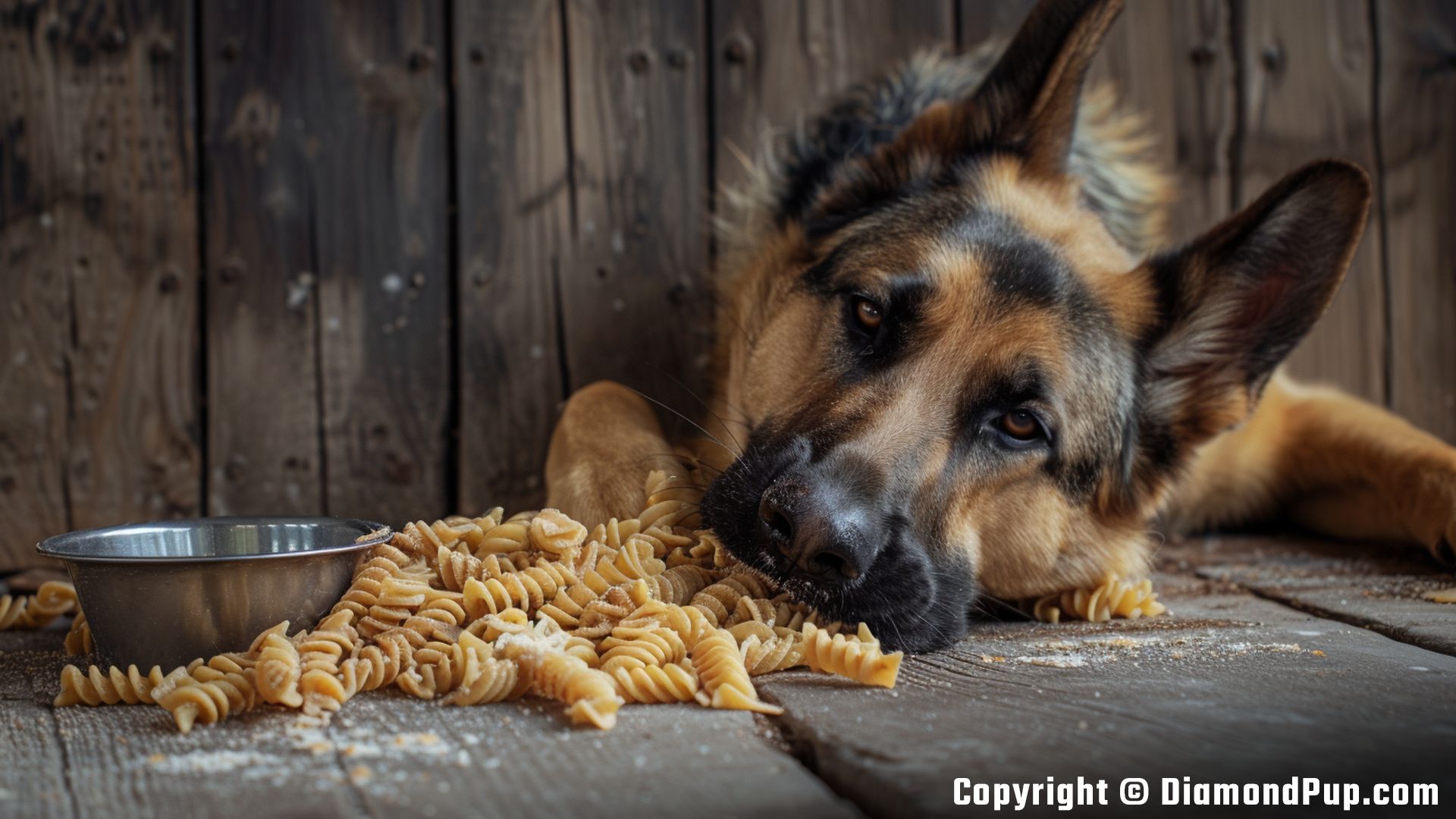
How to properly feed your dog pastas
When feeding pasta to your German Shepherd, it's important to choose the right type and quantity. Opt for whole wheat or grain-based pasta over white pasta, as it provides more fiber and nutrients. Avoid pasta sauces that are high in salt, spices, or onions, as these can be harmful to your dog. Cook the pasta thoroughly to make it easier for your dog to digest, and ensure it is plain without any added seasonings or ingredients that could upset their stomach.
When serving pasta to your German Shepherd, it should only make up a small portion of their overall meal. The majority of their diet should still consist of high-quality dog food that is specifically formulated for their breed and size. Consult with your veterinarian to determine the best amount and frequency of pasta to include in your dog's diet, taking into consideration their individual nutritional needs and any health conditions they may have.
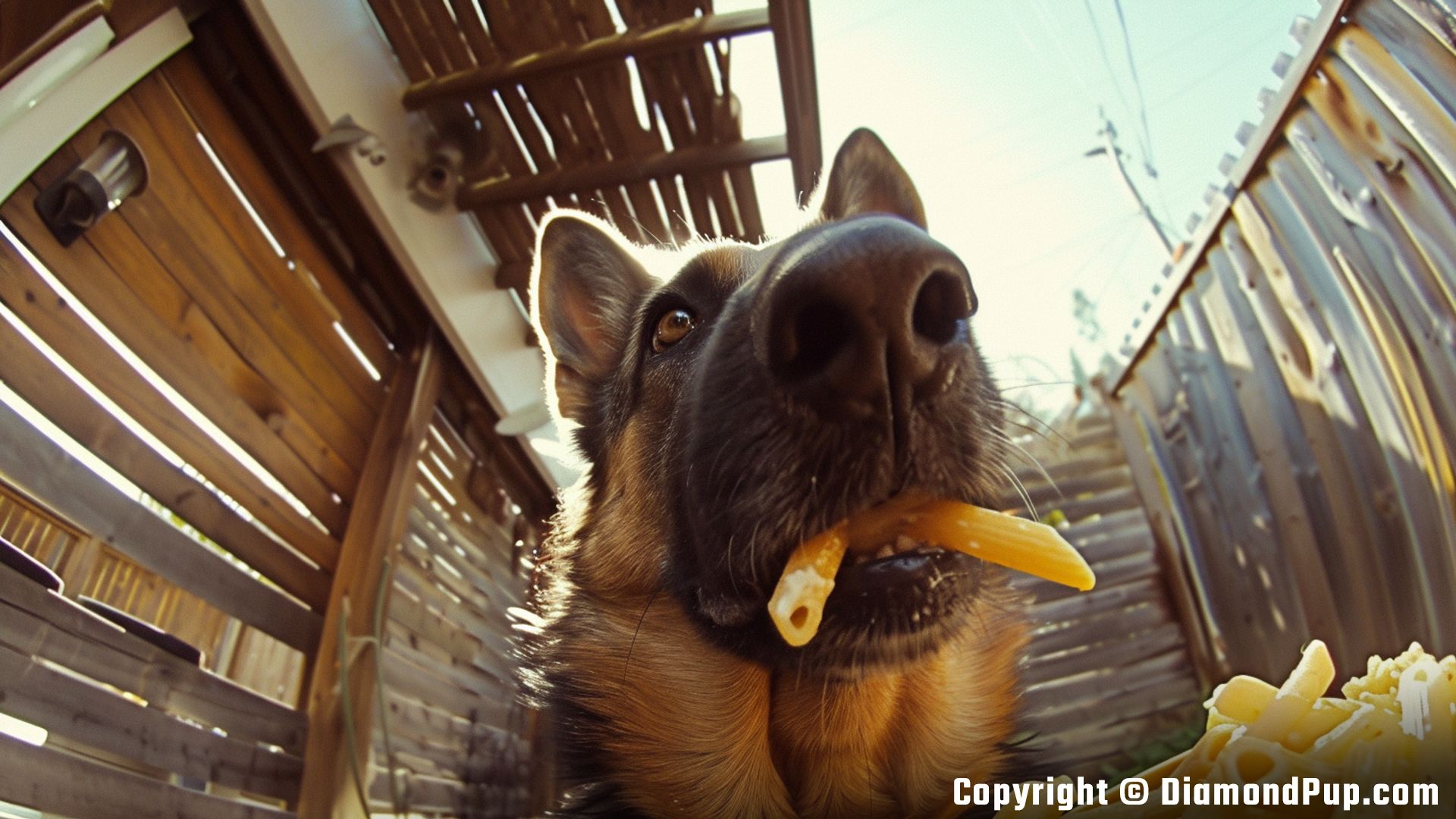
Do German Shepherds Like Pastas?
German Shepherds generally enjoy the taste and texture of pasta, making it a tempting addition to their diet. Due to their high energy levels and active nature, German Shepherds may appreciate the extra calories and carbohydrates that pasta can provide. However, it's essential to remember that pasta should only be given in moderation and as part of a balanced diet to prevent weight gain and nutritional imbalances.
When serving pasta to your German Shepherd, opt for whole wheat or grain-free options to ensure they receive beneficial nutrients like fiber and protein. Additionally, avoid adding any seasonings or sauces that may be harmful to your dog's digestive system. By considering your German Shepherd's specific dietary needs and preferences, you can determine whether pasta can be a suitable and enjoyable treat for them.
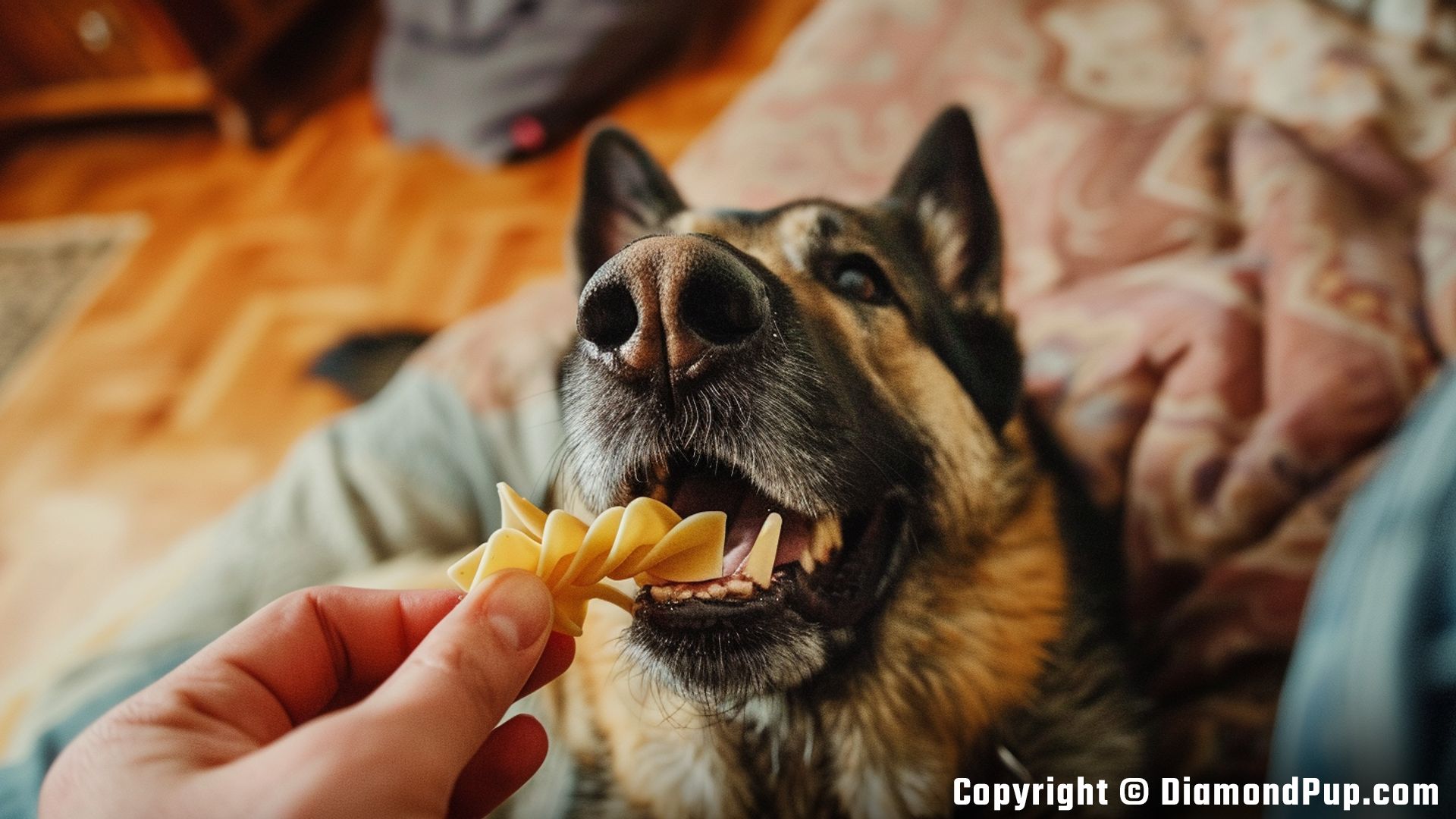
Special Consideration for German Shepherds
One important consideration for German Shepherds when incorporating pasta into their diet is their tendency towards sensitive stomachs. This breed can be prone to digestive issues, so it's essential to introduce pasta gradually and monitor their response. People also ask is pasta good for French bulldogs in a similar context, highlighting the importance of diet considerations across different breeds. Additionally, German Shepherds are known for their high energy levels and require a balanced diet to support their activity levels. Therefore, it's crucial to ensure that the pasta is just one component of a well-rounded meal plan that meets all their nutritional needs, including protein, fats, vitamins, and minerals.
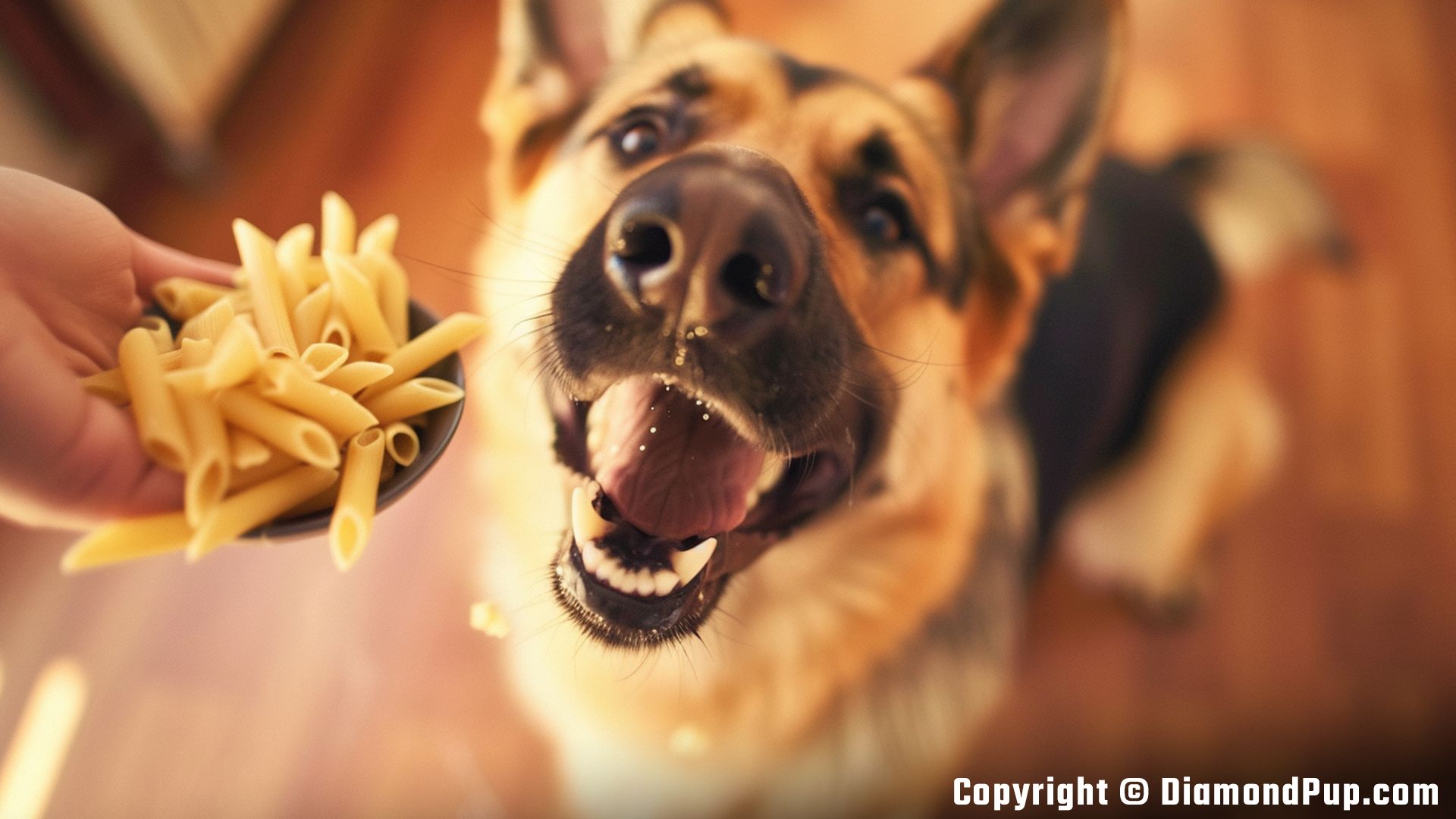
Can Puppies Have Pastas?
When it comes to feeding pasta to German Shepherd puppies, it's important to proceed with caution. While pasta can be a source of carbohydrates for puppies, it should not make up a large portion of their diet. Puppies have specific nutritional requirements for their growth and development, and a diet too high in carbohydrates from pasta can potentially lead to nutrient imbalances. It's best to consult with your veterinarian to determine the appropriate amount of pasta to include in your German Shepherd puppy's meals.
Additionally, when feeding pasta to German Shepherd puppies, it's crucial to choose whole grain or whole wheat pasta options to ensure they are getting the necessary fiber and nutrients. Avoid pasta sauces that may contain ingredients like garlic or onion, which can be toxic to dogs. Overall, while German Shepherd puppies can enjoy pasta in moderation, it should not be the main component of their diet to support their overall health and well-being.
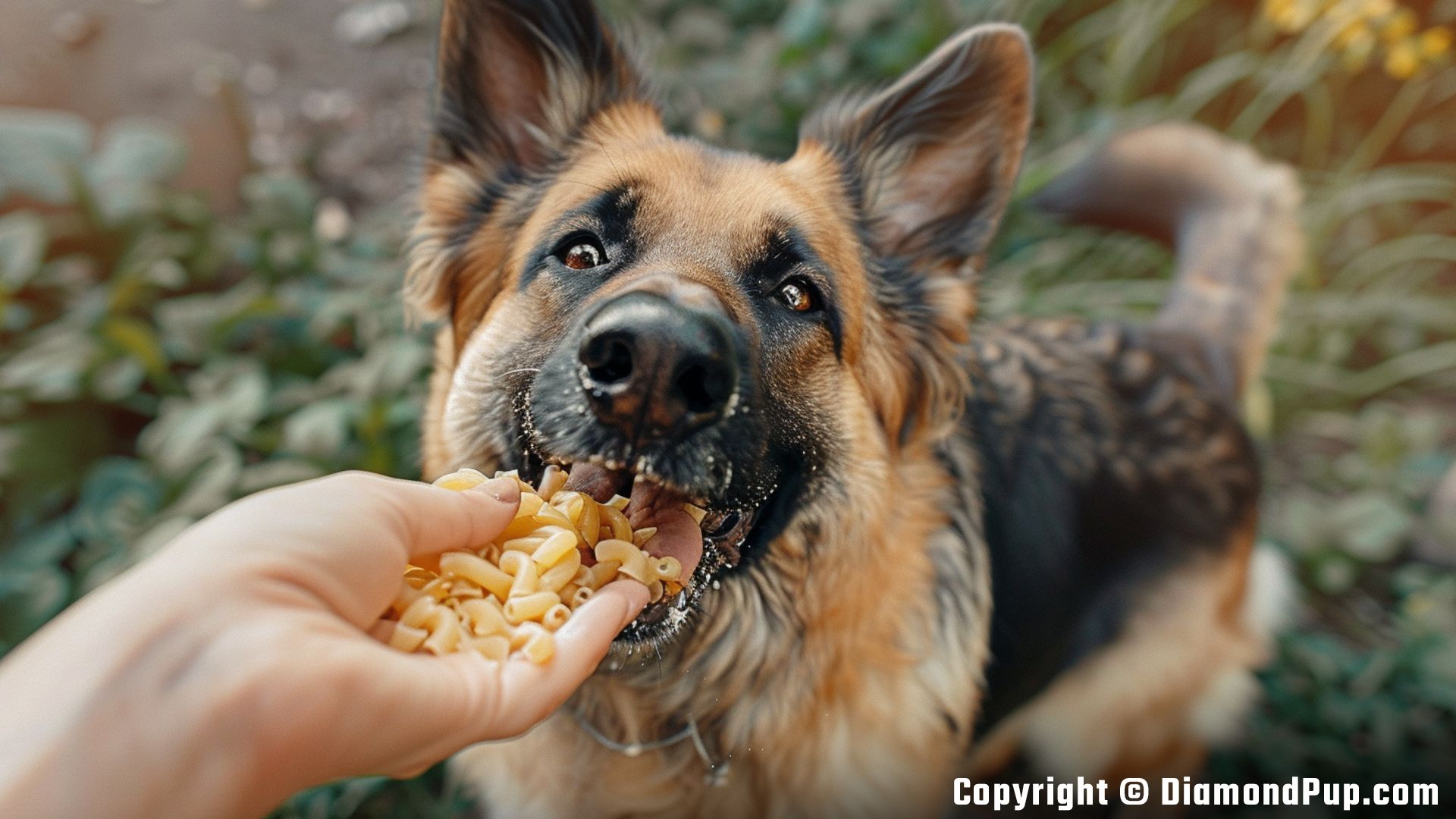
Are there any German Shepherds that shouldn't eat pastas?
While pasta can be a safe and tasty addition to most German Shepherds' diets, there are some individuals who may not benefit from consuming pasta regularly. For example, German Shepherds with certain health conditions such as obesity, diabetes, or food allergies may need to avoid pasta or consume it in moderation. Pasta is often high in carbohydrates, which can contribute to weight gain in dogs predisposed to obesity. Additionally, dogs with diabetes may need to carefully monitor their carbohydrate intake to maintain stable blood sugar levels.
If you notice any digestive issues, allergic reactions, or weight gain in your German Shepherd after feeding them pasta, it may be a sign that they are not tolerating it well. In such cases, it's best to consult with your veterinarian to determine the best diet plan for your furry friend, which may or may not include pasta depending on their specific needs.
Recipes for Feeding Your Dog Pastas
When considering feeding pasta to your German Shepherd, it's essential to select the right type of pasta that will provide the necessary nutrients for your dog. Opt for whole wheat or whole grain pasta, as they contain higher fiber content compared to white pasta. Fiber is important for your dog's digestive health and can help regulate their bowel movements. Additionally, whole wheat pasta is a good source of carbohydrates, which can provide your German Shepherd with the energy they need to stay active.
Avoid adding any toxic ingredients such as onions, garlic, or high-fat sauces to the pasta. Instead, consider incorporating lean proteins like boiled chicken or turkey, along with dog-friendly vegetables such as carrots or green beans. This balanced approach will ensure that your German Shepherd receives a nutritious and delicious pasta meal.
Alternatives to Pastas for German Shepherds
While pasta can be a safe and enjoyable addition to your German Shepherd's diet in moderation, it should not be the sole source of their nutrition. As a high energy breed with specific dietary needs, German Shepherds require a well-balanced diet that includes a variety of nutrients to support their overall health and wellbeing. Therefore, it is important to consider incorporating alternatives to pasta such as lean proteins like chicken or turkey, healthy fats like salmon or flaxseed oil, and complex carbohydrates like sweet potatoes or brown rice.
These alternatives can help ensure that your German Shepherd receives all the essential vitamins, minerals, and macronutrients they need to thrive. Consulting with your veterinarian or a qualified veterinary nutritionist can also provide personalized recommendations tailored to your individual dog's unique nutritional requirements.
Common Questions About German Shepherds and Pastas
One common question that often arises is whether it's safe to feed a German Shepherd pasta with sauce. While plain pasta can be a suitable addition to your dog's diet in moderation, it's important to avoid feeding them pasta with rich or creamy sauces. These types of sauces are often high in fat, salt, and other ingredients that can be harmful to your dog's health. Instead, opt for plain pasta with a small amount of lean protein, such as boiled chicken or turkey, to create a balanced and nutritious meal for your German Shepherd.
Another frequently asked question is whether whole grain or white pasta is better for German Shepherds. When it comes to choosing between the two, whole grain pasta is generally the healthier option for dogs. Whole grain pasta contains more fiber and nutrients compared to white pasta, which can help support your German Shepherd's digestive health and overall well-being. Remember to always cook the pasta thoroughly and avoid adding any seasonings or ingredients that are harmful to dogs.
Subscribe Now
Stay updated with the latest news and articles! We'll keep you updated on the latest tips for your pet German Shepherd
